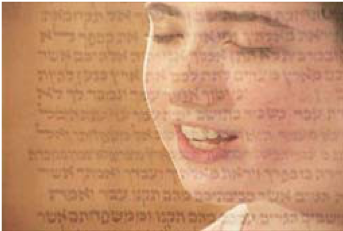
By David Lamble

How does an atheist goy come to say thank God for the 26th San Francisco Jewish Film Festival? In the late 1950s, as a white bread but deracinated welfare kid living in an affluent Long Island beachtown, I stumbled down a kind of cultural rabbit-hole that still nurtures me. Leaving the volatile but sheltering cocoon of my British father’s rule over all life choices from food to TV, I plunged into the planned chaos of a secular Jewish high school where the choir teacher thought I deserved a lead in a Gilbert and Sullivan operetta, where my Latin teacher charitably passed me through four years of Roman history and Latin roots, where I would get a leg up to college and finally kiss a certified Jewish boy as his parents slept unaware in the next room.
My life was like the scenario of a Jewish documentary, a form that defines half or more of the films at the Jewish Film Fest. These films are often extremely personal, self-consciously intellectual examinations of subjects you might never have asked about: how to start a gay/straight alliance at a private, religiously-oriented Jewish high school; how to be the first Israeli Playboy bunny; or how to evacuate a sunny beachtown against the will of the residents. Whether or not you approve of modern Israel, you’ll understand how it ticks and how oddly American it is by attending the SF Jewish Film Fest, from July 20 to August 7 at venues in San Francisco (Castro Theatre, 7/20-27), Berkeley (Roda Theatre at Berkeley Rep., 7/29-8/5), Mountain View (Century Cinema 16, 7/29-8/3) and San Rafael (Smith Rafael Film Center, 8/5-7). More info at SFJFF.org.
Hineini: Coming Out in a Jewish High School When Shulamit Izen began classes at the New Jewish High School (the slang for which is “New Jew”), she made what would seem to be two irreconcilable decisions: to immerse herself in the religiously charged environment of a private academy dedicated to having kids from reform to orthodox study under one roof, and to proclaim herself a lesbian and start lobbying for a gay/straight alliance at a school where many classmates and their parents considered such a step to be a spiritual abomination.

GLBT Orthodox Jews are often faced with a horrible choice: having to decide between being openly gay and potentially losing their family and religion, or hiding in a heterosexual lifestyle.
Izen, soft-spoken and admittedly naive in the beginning, emerges by film’s end a wiser person who has still not allowed herself to become cynical or despairing at how hard it is to get religious Jews to abandon what the school’s bearded, avuncular headmaster refers to as thousands of years of teaching about the unsuitability of homosexuality in the Jewish tradition. Director Irena Fayngold takes us through the process, excruciating at times, of changing one mind at a time. The hardest to reach were the four closeted faculty members whose support would prove critical. The film ends in an upbeat but realistic fashion: Izen gives a speech to a school assembly that resembles the one given by the idealistic schoolboy in Get Real. But when all is said and done, Izen and her out friends graduate, leaving it unclear who among the younger kids will pick up the mantle.
Paired with a terrific short: The Tribe is an instant history, with a witty narration by Peter Coyote, explaining how the creation of the Barbie doll (by a Jewish woman) can be seen as a metaphor for thousands of years of Jewish persecution and endurance. (Castro, 7/27; Berkeley, 7/30)
Copyright © 2006, Bay Area Reporter, a division of Benro Enterprises, Inc.